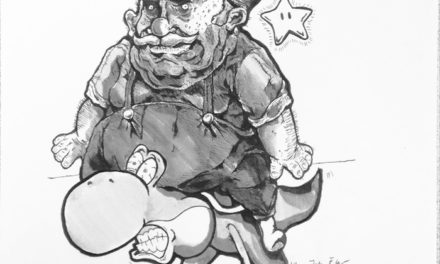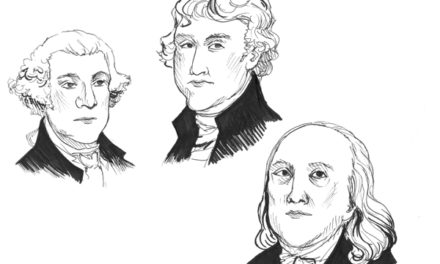
(Pixabay/mohamed_hassan)
Maitland Jones, an acclaimed professor of organic chemistry who taught at New York University (NYU), was recently terminated by the university’s deans. This move stunned faculty, alumni and even the 82 of his 350 students who had signed a petition stating that his course was too difficult. They wanted better grades, not a fired professor.
Foremost, NYU was wrong to fire Jones. While his students’ frustrations with learning during the pandemic are valid, no one should be fired for writing hard tests. However, other student grievances, such as harassment or a failure to teach adequately, do warrant administrative action. To resolve such problems fairly, universities like Emory University and NYU should create a formal petition-based process for students to self-advocate. Universities could then have a committee deliberate the circumstances and consult both the students and professor on how to best make necessary changes. Firing should be a last resort, not a knee-jerk reaction.
Jones’ dismissal raises crucial questions about academic culture at Emory and its peer institutions. Is pre-professionalism crowding out quality education and stopping us from learning resilience? How can we address chronic grade inflation without harming the career prospects of students? We cannot endeavor to solve all these complex issues here. However, we suggest some institutional practices as a start to handling future student-professor disputes.
The problem with Jones’ case is centered on his course’s status as a prerequisite for medical school; students said that they “feared for their futures” with grades that could derail career plans. In particular, the student-created petition cited the course’s few exams, lack of extra credit and opaque grading criteria. Jones and his colleagues tell a different story. He said students “lost focus” in the last several years; Jones explained that grades fell despite the decreased difficulty of his exams and the over 50 lectures that he and other chemistry professors personally financed and filmed. His teaching assistants asserted that students were neither coming to class nor watching the videos, and other professors said they saw a rise in cheating.
The NYU administration decided that Jones’ teaching did not meet university standards and offered students an opportunity to retroactively withdraw from the class. Jones and other NYU professors are less upset about this case in particular and more anxious about the precedent his dismissal might set for higher education across the nation, namely that professors might be injudiciously fired when students are dissatisfied with grades. One professor claimed the University simply sought high rankings and positive reviews, placating those who pay tuition: parents. Other professors worried that students could threaten the jobs of untenured faculty and weaken a rigorous academic environment. They also claimed that lowering standards would lead to unqualified doctors.
Funding and appeasing students took precedence over keeping Jones, despite support from his colleagues and decades of published work and teaching. Notably, the students did not even call for his dismissal in the petition. Though the facts about how much support Jones provided to his students are muddled, NYU as an institution epitomized the trend of prioritizing grades and image over learning. It isn’t fair to blame students advocating for themselves; neither is it fair to say Jones should have given all As and Bs to keep his job. Ultimately, it was the NYU administration’s mistake to simply oust this professor.
Above all, we should consider how other universities will react to NYU’s administrative decision. Jones may have been unreasonably punitive toward capable students, or maybe his students faltered under the pressure for high GPAs. Universities need a formal review process in place before making their decision. Like NYU, Emory and other universities have a responsibility to address cases regarding grades and the quality of education from both faculty and students in an organized fashion. Furthermore, conflicts between faculty and students often go beyond the realm of grades. Take Oxford College Professor David Leinweber, whose students unearthed his 2012 song “Little Sophomore Girl” that continues to cause discomfort among students. Leinweber is tenured, which makes an administrative response difficult to elicit despite his wrongdoings. However, registering this complaint through a clear, defined process would likely have catalyzed more substantive change and appropriate consequences.
Students are both the funders and recipients of their education, so universities have an inherent responsibility to productively listen to students’ concerns. Students should have a voice to protest unfair policies or behavior from professors without undermining quality teaching. An institutional outlet should be established for this purpose. When it comes to subjective concerns over grading methods and teaching style, both students and professors should be consulted to reach a fair solution. This formal process would require that complaints be lodged via petition signed by a majority of students. These petitions should be thoughtfully evaluated by a formal committee. Such an investigation process could allow faculty members to sit in on the professor’s lectures, review their class policies, and interview students. The case of Jones was contentious because a substantial but minority opinion led to a dismissal despite some faculty and students voicing support of Jones and disdain with the firing process. On the other hand, cases which involve harassment or an abusive classroom environment should result in the termination of a professor
By all measures, faculty must be protected from unfounded mob mentality. At the same time, students should feel affirmed by a process specifically created for evaluating concerns. An objective investigation process would benefit both parties. The NYU administration’s decision highlights the long overdue issue of establishing a level power dynamic, one that would prevent the bias and scandal in the case of Jones. At this point, Emory and other universities are tasked with the essential question: will they preserve NYU’s precedent or trailblaze a novel model for student and faculty relations?
The above editorial represents the majority opinion of the Wheel’s Editorial Board. The Editorial Board is composed of Isabelle Bellott-McGrath, Rachel Broun, Evelyn Cho, Ellie Fivas, Marc Goedemans, Aayam Kc, Elyn Lee, Saanvi Nayar, Shruti Nemala, Nushrat Nur, Sara Perez, Ben Thomas and Kayla Robinson.
The Editorial Board is the official voice of the Emory Wheel and is editorially separate from the Wheel's board of editors.





